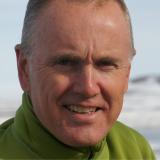Did Not Manage to Agree: First Ever Arctic Council Ministerial Meeting Without Joint Declaration

- There’s been a storm brewing along the way, however, wind makes the ship move forward, Finland’s Foreign Minister Timo Soini said when he opened the 11th Ministerial Meeting of the Arctic Council Tuesday.
ROVANIEMI: What was meant to be ‘only’ a Ministerial Meeting of the Arctic Council turned into the center of global power politics with Trump’s tweet and Pompeo’s verbal thunderstorm against China, Russia and partly Canada.
Yet spirits were apparently high when the foreign ministers of the eight Arctic states and the other members of the Arctic Council met the press Tuesday morning.
There was much speculations about whether or in what form a potential joint declaration would be presented. We know that the fronts have been entrenched, in particular on the issue of climate.
In Fairbanks, actors managed to agree at the 11th hour on wording on which all could agree. However, there is much that goes to indicate that this has not been the case here in Rovaniemi.
Soina opened the meeting by making changes to the agenda. He removed the point about signing of a joint declaration.
Instead, the ministers sign a so-called joint ministerial statement, a document of less formal significance, but still designed to preserve a measure of unity between the eight governments represented within the Council, including the US, Russia, Finland, Canada, Sweden, Norway, Denmark and Iceland.
The foreign ministers and the permanent members of the Council will have six minutes to add their comments.
This will thus be the first Ministerial Meeting of the Arctic Council ever to not have a joint declaration signed at the end.
In this very moment, the Council members are writing up a joint statement, a “Rovaniemi statement”.
It is not really clear what the difference between a statement and a declaration is, however, the former is doubtlessly less committing.
Trump says hi
US Secretary of state Michael Pompeo in his speech send regards from president Trump, and confirmed the US’s continued commitment to Arctic cooperation. He stressed that the US is committed to cooperation on “environmental stewardsship” in the Arctic, and used this to warn against increased chinese presence in the Arctic. He also said, that the US has reduced emissions of black carbon more than any other Arctic nation.
Norway’s foreign minister Ine Søreide Eriksen stressed the importance of climate change but did not mention the lack of consensus. Instead she stressed how the eight Arctic governments still agree on new approaches to marine conservation and other joint priorities. She interpreted the presence of all eight Arcic Foreign ministers as a strong sign of common support for Arctic Cooperation. It is only the second time in the 23 years of the Arctic Council that all eight foreign ministers attend an Arctic Council meeting.
Regretted no formal consensus
Sweden’s foreign minister Margot Walström regretted that no formal consensus on a decleration was reached, but also recognized the continued cooperation: “The message I hear is clear: A testimony of the importance of the Arctic Council,” she said.
She stressed that climate change is “happening as we speak”.
“Our planet has done all she can to do to keep Greenland and the permafrost in Sibiria intact”, she said and aske for “urgency of action”.
“Making observations is not the same as taking action,” Wahlström said, thanking the representatives of the indigenous peoples for remining the Council of the need to address climate change.
Real concerns
One of the permanent representatives of the indigenous peoples, Bill Erasmus, head of the Arctic Athabaskan Council, in his formal speech within the Council expressed clear frustration:
"We have some real concerns, climate change is real and out elders tell us we are in real in trouble," he said.
The majority view of the Council was expressed by a formal statement by the Finnish chairman of the meeting, foreign minister Timo Soini:
“A majority of us regarded climate change as a fundamental challenge facing the Arctic and acknowledged the urgent need to take mitigation and adaptation actions and to strengthen resilience, and welcomed the outcomes of the UNFCCC COP24 in Katowice, including the Paris agreement work programme.”
No mention of climate change
The weaker joint ministerial statement signed also by US secretary of state Michael Pompeo did not mention climate change.
Instead it recognized "the diversity of the societies, cultures and economies in the Arctic, reaffirming our commitment to the well-being of the inhabitants of the Arctic, to sustainable development and to the protection of the Arctic environment".
The statement alongside other formal instruments will ensure that the work of the Arctic Council, its scientific working groups and other subsidiaries can continue to work, even if no comprehensive political declaration was able to produce consensus between the governments.


